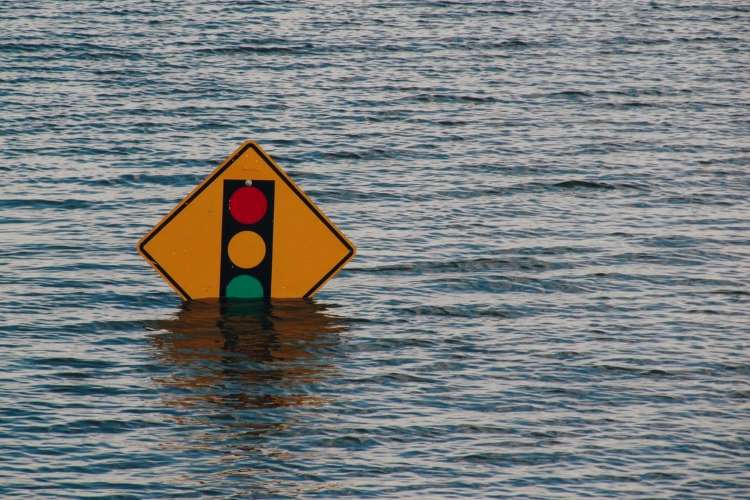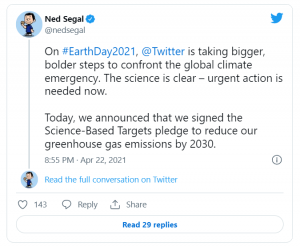
Ads promoting climate change denial: In a landmark decision, Twitter has banned advertisements that contradict scientific consensus on climate change to stop groups propagating climate change denial. “We believe that climate denialism shouldn’t be monetized on Twitter,” the social media platform said in a blog post on Earth Day. It said misleading information on climate change can subvert efforts to save the planet.
The ban comes as a response to criticism by activists on social media companies such as Facebook, Twitter and Google for monetising content that promote climate change denial. The activists say these massive social networks are doing precious little to combat climate change disinformation from spreading.

Last year Twitter had started an initiative to route traffic to online hubs offering authoritative information on climate change using ‘explore’ tabs and trends lists. Google had also announced a ban on advertisements that contradict the scientific understanding of climate change. Meta Platforms, formerly Facebook, launched a Climate Science Center to offer accurate information on climate change. Meta also has banned ads promoting false information on climate crisis.
READ I Air pollution raises Covid-19 risk among young adults: Study
These efforts have not amounted to much as climate change denial groups still manage to evade the moderation systems. They continue to propagate that there is no proof of the adverse effects of climate change. A 2021 study found that five accounts propagating climate change denial managed 6 crore views.
Origins of climate change denial
Carbon emissions from fossil fuels like coal, oil and natural gas are making the earth warmer and triggering climate change. The results can be seen everywhere — extreme climate events like droughts, floods, cyclones, heat waves and wildfires are threatening life on the planet. There is near unanimity in the scientific world on the human origins of the climate crisis. Yet there are people who choose to look the other way.
READ I Facebook algorithm promotes disinformation on climate change: Study
Denial comes from the desire to believe that something is not true. When you deny something, you insulate yourself by refusing to accept the truth about the situation. For many who deny climate change, their denial is a mechanism that helps them adjust to the distress caused by the truth. When scientific findings clash with a person’s ideology, they tend not to believe them. Often, they search for information to disprove it, which is not difficult in this age of internet. Social scientists call this process motivated reasoning.
Many think tanks and front groups tell such people what they want to hear. It is a difficult task to shape public opinion, which often goes against facts. Here, these elements start by attacking the facts, creating a parallel knowledge system that negates the facts.
The oil industry started lining up a number of contrarian scientists in the I990s who countered the scientific findings on climate change. Thus, climate change deniers found a world where nothing can be taken for granted. They genuinely believe climate scientists cannot be trusted and that they are constantly being lied to. Climate change can be a complex topic, but scientific evidence clearly proves that global warming is a manmade phenomenon.

